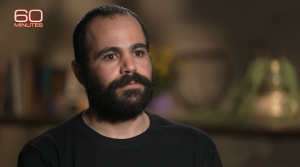The NHL has joined the chorus of voices critical of the decision by ice hockey’s world governing body to block Israel’s national teams from participating in upcoming championship tournaments, due to what the International Ice Hockey Federation (IIHF) has described as safety reasons, not political ones.
A statement released by the National Hockey League on Jan. 13 expressed “significant concerns” with an earlier announcement by the IIHF that bars Israel’s national ice hockey teams–including men, women, and two junior men’s squads–from taking to the ice this winter in four championship tournaments to be held in Spain, Serbia and Estonia.
While the statement did not mention antisemitism or the ongoing Israel war in Gaza following the Oct. 7 Hamas attack and massacre of 1,200 Israeli residents, the NHL pointed out that it has been assured the IIHF move is temporary, and shouldn’t be considered as a sanction on Israel.
But that is exactly how the news was interpreted by Israel’s own hockey federation, as well as some athletes, staff and Canadians who helped build the Jewish State’s hockey program.
“We see this as discriminatory and against the Olympic Charter and it will not be accepted by Israel,” said Mikhael Horowitz, an Israel hockey player who is now the new CEO of his country’s national hockey federation.
Israel will now be appealing the IIHF’s decision to the Court of Arbitration for Sport, based in Lausanne, Switzerland, Horowitz told The CJN in an interview from Tel Aviv.
Risk assessment
It isn’t clear whether the legal challenge will happen in time to reverse the outcome for Israel’s U20 men’s hockey team before their tournament starts in Bulgaria on Jan. 22.
Israel’s men’s junior team was initially supposed to host this month’s tournament in Israel. It would have been a chance for the Israeli teens to get a do-over, after capturing the silver medal in the 2023 championship in Istanbul, in their division. The Israeli team made it to the finals in that tournament, but lost in the gold medal game to Australia by a final score of 4-1.
After Oct. 7, it was decided to move the Division lll U20 matches this year to Sofia, Bulgaria, where Israel was scheduled to start the competition in the Group B round robin with five other teams: Turkey, Kyrgyzstan, New Zealand, Mexico and Bulgaria.
According to the Israel Hockey Federation’s Horowitz, Israel understood the reason for the venue move for the juniors, and accepted it.
But he said the Zurich-based organization only told Israel 24 hours ahead of making the news public on Jan. 10 that it would be expanding its restrictions even further to all upcoming tournaments and ages. Horowitz was also critical of the IIHF for not being more transparent about how they arrived at the decision, suggesting the governing body may not have wanted to incur higher costs to make the venues safer.
“Any decision that Israel can not participate, so far away from the event and is a broad decision for all locations, it just doesn’t make sense for us and our understanding of how security assessments are made,” he said. “There was no attempt to take the risk assessment, and together with us or on their part, find solutions.”
Aside from the juniors, the prohibition affects Israel’s U18 men’s team, set to play beginning March 17 in Spain; the women’s national team set to play beginning on March 24 in Estonia; and the men’s championships which are due to start April 21, right before Passover, in Belgrade, Serbia.
The IIHF denies the decision to restrict Israel from competition had anything to do with politics, and also insists they did not bow to pressure from anti-Israel countries who are members of the federation.
Luc Tardif, the Canadian-born French citizen who is the IIHF president, maintains it was solely because they couldn’t guarantee the safety of everyone on and off the ice.
“We took our responsibility [seriously] because we considered there is no way to reach a 100 percent security set up, following a study of the infrastructure, the countries and the organizing committee set up, and of course the short [timeframe],” Tardif told The CJN in a Jan. 11 email.
Reaction from Canadians
The announcement prompted an outcry in Israel, including from Canadian supporters of the Israel hockey program.
Paul Shindman, who made aliya from Toronto and founded the Ice Hockey Federation of Israel in 1989, was Israel’s first representative to the IIHF Congress. Shindman said he was outraged by the unsportsmanlike conduct of the international federation.
“To punish Israeli hockey players after their country was brutally attacked by terrorists is unfair and unjust,” Shindman told The CJN from Jerusalem. “Israel’s sportsmen and women deserve the support and embrace of their friends in the international hockey world, not to be excluded. It makes them victims twice over.”
Esther Silver is general manager of the Israeli women’s national team. The Calgary-born and Toronto-raised goalkeeper lives in Kfar Vradim, close to the border with Lebanon where she hears artillery fire, and watches as one of the IDF’s Iron Dome batteries, located in her village, intercepts incoming rockets from Hezbollah fighters.

Silver guided the fledgling women’s team to its international debut in 2022 at a tournament in Serbia. While the team is currently ranked 44th, at the very bottom of the IIHF standings, the Israel women did gain international attention in March 2023, when it hosted teams from Bosnia and Herzegovina, and also Serbia for a divisional tournament at the Oneice arena in Tnuvot, east of Netanya.
The team boasts one Canadian player, Naomi Roy, who hailed from northern Ontario before moving to Israel, while several of the Israeli players currently train year round at a sports academy north of Toronto.
While the IIHF defended itself against allegations of acting politically against Israel, Silver believes there had to have been pressure to keep Israel out from some of the IIHF’s 83 member countries who were part of the risk assessment consultations.
“As we see in The Hague today, in Europe, that they are putting us on trial for genocide, where actually we’re the victims of genocide,” Silver said, referring to last week’s hearing at the International Court of Justice where South Africa has accused Israel of genocidal intent against Palestinians in its military operations in Gaza after Oct. 7. Hamas health officials claim over 25,000 Palestinians have been killed,—although they don’t announce how many were members of the military and how many were civilians.
“I absolutely believe that some nation states are simply anti-Israel, antisemitic and would automatically reject our participation,” Silver added.
Ban could be revisited
Luc Tardif, president of the IIHF, deflected accusations that the world hockey body was riding roughshod over Israel.
For the past three years, he retorted, Israel’s ice hockey program has itself been plagued by management problems, including financial ones, forcing the IIHF to block Israel’s account.
Yet the IIHF financially supported the national hockey program, he said, and he personally visited Israel twice to help Israel stage the first ever women’s hockey world championship during the 2022 Maccabiah Games.
Now the Israeli federation has new management, with Horowitz as CEO, and also has the backing of the Israel Olympic Committee, which is taking up the reins of the legal challenge to the Court of Arbitration for Sport.
“I am happy that the Israel government and Israel now all of a sudden care about hockey,” Tardif said.
Two days later, the IIHF found itself hastily issuing a second statement, on Jan. 12, to clarify its decision.
The organization maintained it acted after reviewing the findings of a risk assessment done by an external consulting firm hired to look at safety and security issues if Israel were to send its teams to play during the current spike in anti-Israel protests in many parts of the world, especially continental Europe.
Of particular concern about the Jan. 22 junior men’s matches were: the location of the championship arena in Sofia “being located in a student area with a high population from the affected regions,” the iiHF said.
In particular, officials were concerned that they couldn’t guarantee safety because the rinks are located inside a “multi-purpose arena facility” containing other ice pads, stores, a public gym, and restaurants that will not be operating normally during the championship.
They also worried about being able to screen the fans, and other security logistics when the expected 1,000 to 1,500 ticket holders will show up to attend the Bulgarian team’s home games.
According to Horowitz, that’s nonsense. Israeli teams always work out security concerns two to three weeks before traveling to any tournament and the one Jan. 22 would have been no different, he said. Advice is sought from the defence ministry, who calculate the number of required bodyguards—and that can be adjusted at the last minute if conditions change.
The IIHF’s Tardif wasn’t optimistic anything would be reversed for the U20 team, but suggested the IIHF could revisit its position for the three other upcoming World Championship tournaments in March and April. He pledges to review the situation in mid-Feburary at a meeting of the IIHF Council.
Canadian players
Israel’s national men’s team is slated to compete for the IIHF World Championship Division ll tournament, being held in Belgrade, Serbia. The round robin begins April 21, and continues until April 27.
Participant nations include the host Serbia’s men’s team, plus teams from Israel, Croatia, Australia, United Arab Emirates, and Iceland. While Israel’s men’s squad has captured gold in the past, the current team did not medal in 2023 or 2022.
There are several players with deep ties to Canada on the team: David Levin, 24, who moved to Richmond Hill, Ont., at age 13 to play ice hockey.
He played five years for the OHL’s Sudbury Wolves, before heading to the KHL in 2020. He currently plays for a premier league team in Romania.
Levin’s younger brother Michael, 18, is a forward with the OHL’s Niagara IceDogs in Saint Catharines, Ont. He was drafted in 2021 by the London Knights, and played two seasons there before being traded to the IceDogs for the 2023-2024 season.
Veteran forward Eliezer “Elie” Sherbatov is a Canadian player who has suited up for the Israel national team for years, including as its captain since 2019. Sherbatov scored the winning goal to help Israel win the gold medal at the 2019 IIHF World Championships held in Mexico.
‘Fight on the ice’
Sherbatov, 32, who was born in Israel and now lives in Montreal, was there where he learned about the IIHF’s decision. Describing feeling “shocked”, Sherbatov also acknowledged that the hockey governing body was also being protective because of the tense climate worldwide right now around the ongoing war in the Middle East.
However, he feels keeping Israel out of international play not only penalizes the athletes who have been training for the chance to participate in high-level international competition, but also removes any chance for his native country to make a strong political statement on the ice.
“It means fighting as a unit, as a team, as a country to put some pride into Jews around the world and for Israelis that, ‘Hey! We’re here for you.’ For me it’s like going to war with my family, and trying to win a gold. And this is the best way, I think, to sort out any conflict. It’s a good hockey game.”

Sherbatov last joined his teammates on the roster at the 2022 IIHF tournament held in Zagreb, Croatia, which was held just weeks after he narrowly escaped the Russian invasion of Ukraine on Feb. 24 of that year. Sherbatov was signed to play for the 2021-2022 season in the Ukrainian SuperLeague, for HC Mariupol. He was with his team in the eastern city of Kramatorsk ahead of a game, when Russian troops
attacked.
Sherbatov spent six days fleeing for his life by train until he reached Lviv, where Israeli diplomats helped him get out and fly back to Canada to rejoin his wife and two children.
After the war with Ukraine started, the IIHF banned Russia and Belarus from international hockey competition–and that ban continues. The decision to keep Israel out comes as that country marks 100 days since Hamas kidnapped 240 Israeli residents as hostages.
For both those reasons, Sherbatov finds the IIHF decision a hard penalty to wrap his head around.
“We are being the victims here, you know, and now they’re taking this from us, so that’s why we don’t want to let it go,” Sherbatov said. “We want to show we’re still standing, we’re here. That’s why it’s really important for us to play those tournaments.”
Despite the IIHF’s stated concerns, Sherbatov doubts the security issues at international tournaments will be much different than those he has faced throughout his professional hockey career. After his debut years in Quebec, he played for teams in the KHL, France, Latvia, Slovakia and Ukraine, plus also in Poland, where he intentionally signed up for a club in Oswiecim, near the site of the Auschwitz death camp where over a million Jews were murdered by the Nazis during the Holocaust. But he has seen no antisemitism in countries like Estonia, Bulgaria or Hungary.
“Believe me, I’ve waved my Israeli flag on top of my head throughout my whole career,” said Sherbatov, who’s autobiography was published in 2022 entitled My Left Skate.
He worried that keeping Israel out of the tournaments this year will mean a lost opportunity for some players to represent Israel on the world stage for the last time: U18 players will have to go into the army soon, while older players like himself could find there’s no longer room for them on the rosters if and when the ban is eventually lifted.
That’s also a concern for the Israel Hockey Federation head, Mikhael Horowitz. He points to the players now on the U20 squad who were born in 2004, and thinks about the players born 2006 on the U18 team.
The former may not make the senior men’s team after they turn 20, while the latter will have to interrupt or possibly end their hockey careers to do mandatory military service this year, when they turn 18.
More than that, Horowitz says, the athletes feel the IIHF is siding with the terrorists.
“They feel and we feel that, in a way the IIHF is supporting portions of people in the world who have forced Israel into this situation, instead of using sports as part of the developed countries’ efforts to provide good(ness) and freedom into the world.
“And I personally feel that way.”







